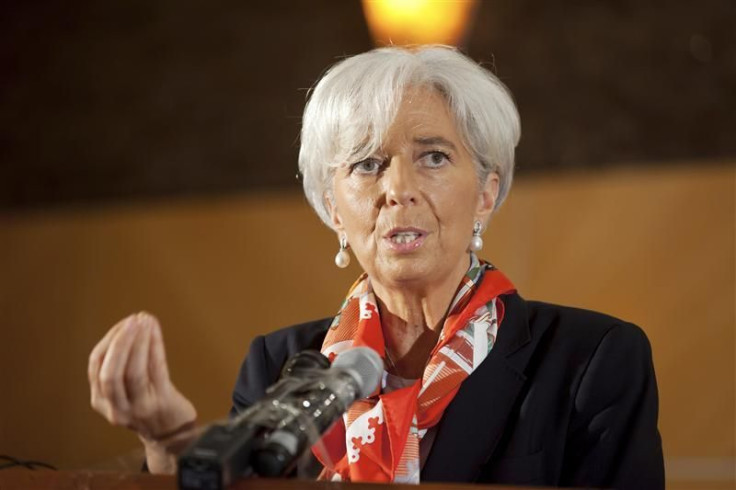'It Would Be Messy': IMF Chief Lagarde Talks Of Potential Greek Euro Exit

International Monetary Fund (IMF) chief Christine Lagarde has openly discussed a Greek exit from the euro, saying the unprecedented event would be messy and its impact hard to asses.
When asked if Greece could leave the euro, Lagarde told France 24, We certainly don't hope so, from the IMF point of view ... but we have to be technically prepared for anything.
The spillover effects, the chain of consequences that could result from that [Greek euro exit] are very difficult to assess.
We can certainly assume that it would be quite messy.
The comments come amid a growing chorus of European ministers openly discussing the possibility of a Greek exit from the single-currency bloc.
Greece, wracked by political uncertainty after last week's fractious elections, is bracing itself for a second round of elections next month after a final bid to form a government failed on Tuesday.
Elsewhere, Greek President Karlos Papoulias met party leaders in Athens on Wednesday to set up an interim government, ahead of the election which is expected to return a victory for the left-wing, anti-austerity Syriza party.
Syriza party leader Alexis Tsipras has already stated his party's intention to abandon the German-led Fiscalpact of harsh austerity measures in exchange for the EU/IMF bailout money, which is currently keeping the Greek economy afloat.
If the country's budgetary commitments are not honored, there needs to be appropriate revisions, which means either supplementary financing and additional time, or mechanisms for an exit, which in this case must be orderly, the IMF chief added.
In a bid to temper talk of a Greek exit, German Chancellor Angela Merkel told CNBC on Wednesday that she wanted the country to remain in the economic-monetary union.
I want, just like Jean-Claude Juncker, that Greece stays in the euro. I think that would be good for Greece and for all of us, she said, referring to Luxembourg's prime minister.
Merkel added, If Greece believes that we can find more stimulus in Europe in addition to the memorandum (the deal stuck with the EU/IMF/ECB Troika), then we have to talk about that.
Despite her comments, uncertainty continued to loom over Greece's economic and political future -- pushing the euro to a four-month low against the dollar.
© Copyright IBTimes 2024. All rights reserved.











